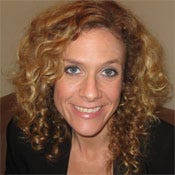Rev Up Your IT Career
In the constantly evolving world of IT, there's no such thing as resting on your laurels. Here's how to stay relevant.


2012 Salary Survey: 12 Career Insights
2012 Salary Survey: 12 Career Insights (click image for larger view and for slideshow)
Millennials may occupy the majority of cubicles in Silicon Valley, but there's still a place for today's more seasoned IT professionals. The trick is staying relevant in an era of fleeting trends and fickle clients.
Just ask Dr. John Wooten. At the ripe age of 70, Wooten is CTO of ShouldersCorp, a Virginia-based IT consulting firm he co-founded with Dr. Tom Love, co-inventor of programming language Objective-C. "Those of us who are a little older have learned how to constantly improve our skills," says Wooten. "You have to constantly read and update your skills and learn what's going on. Otherwise you're doing something someone did 30 years ago, and nobody will be interested."
Wooten offers some tips for IT professionals—advice he says has not only helped him stay relevant but also rev his career engine in later life.
Go off the rails every now and then. Working on code that requires a lot of maintenance can become a tiresome task, especially when you've been doing it for years. To combat fatigue, Wooten says, he downloaded Ruby On Rails and started playing around with it. "It's a nice tool to create maintenance scripts," he says. "For example, if you have a very complicated database, you have to write a lot of code--all of which is just about adding users and addresses. There are all these little pieces that have to be worked on. But Ruby On Rails lets you almost mechanically build them." By learning more about a full-stack framework, Wooten got just the refresher course he needed to continue creating great code.
[ For more IT career advice, see 5 Ways IT Leaders Can Get More Staff Feedback. ]
Explore new states. Over the years, Wooten says it's easy for software developers to fall into the pattern of writing software "in a very restricted sense--like a little PC program." In order to stay relevant, according to Wooten, it's critical that IT professionals learn how to create enterprise applications and proper systems analyses that allow for greater scalability. To do this, Wooten began studying stateless Web development. "It was another way of handling complex exchanges," he says. "In the past, we tended to maintain state in various pieces of the software. But what I finally had to do was learn that there's a way so that I don't have to keep the state information in a certain place."
Test-drive new development processes. Working day in and day out, IT professionals can easily become overwhelmed with developing system requirements. To avoid this fate, Wooten got into test-driven development and Agile development. Rather than get caught in the black hole of software development processes, Wooten explains, "I talk to a customer, find out what they want to do, and write a test to see what works. I write the code so that the test will pass. It's a backwards way of doing things, but as soon as the test passes, then you know you're done. You've written a good test."
Build your own apps. While trying to figure out how long it takes to develop certain software, Wooten decided to "make it fun." Rather than record data on spreadsheets, he says, he decided to write an iPhone application that would perform the same job. "Not only did that help automate Wooten's timing of software development cycles, but it was also a way to learn how to create an iPhone app," he says.
A DIY approach to learning--and staying relevant-- helps older IT professionals compete with fresh-faced newcomers, according to Wooten. "It's about staying involved and continuing to look for challenges."
At this year's InformationWeek 500 Conference, C-level execs will gather to discuss how they're rewriting the old IT rulebook and accelerating business execution. At the St. Regis Monarch Beach, Dana Point, Calif., Sept. 9-11.
Read more about:
2012About the Author(s)
You May Also Like
How to Amplify DevOps with DevSecOps
May 22, 2024Generative AI: Use Cases and Risks in 2024
May 29, 2024Smart Service Management
June 4, 2024







